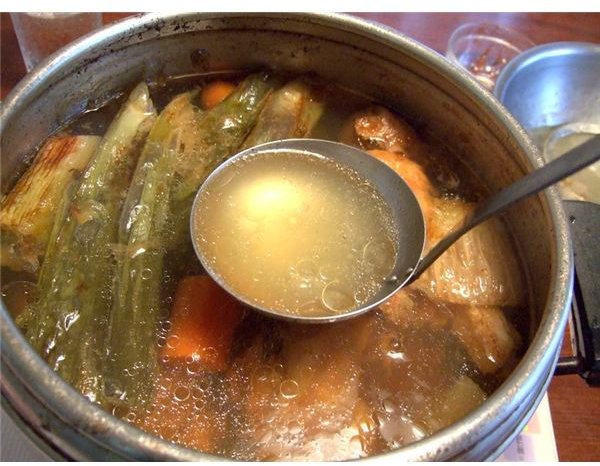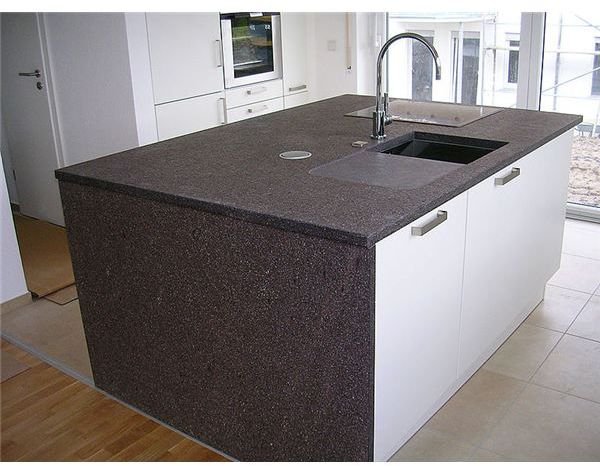Is It Legal to Sell Food From Home? A Look at the Dos and Don'ts
A Business Opportunity in Your Backyard?

Do you have fertile soil, a green thumb and a love for raising vegetable plants? Perhaps you have a bumper crop of tomatoes, berries and fruits that are perfect for canning? Nothing is more natural than canning and conserving these foods and then selling them to friends, neighbors and pretty much anyone who wants to eat healthy, right?
Wrong! Selling food from your house – whether you baked, canned, grew or cooked it – might place you on the wrong side of the law. Adding insult to injury, it may also open the door to legal liabilities, fines and “cease and desist” orders.
Legal Conundrums: A Few Sample Laws
- The Maricopa County Health Code specifies that baked goods made at home for sale to the public must not be in need of refrigeration. The baked goods may only be sold at charity events (not for personal profit) and must carry a warning that they were not made in an inspected kitchen.
- The San Antonio Metropolitan Health District explains that commercial food preparation may only take place in a location that is specifically “zoned for that activity.” At-home food preparation for commercial purposes is strictly forbidden.
- The Erie County Department of Health highlights that home-based bakeries may fall under the auspices of various governing agencies, such as the NYS Agriculture and Markets and NYS Sanitary Code. Limitations include the number of workers, the type of equipment used to bake the goods and the presence – or absence – of a dedicated food service kitchen.
More Reasons for Introspection
By now you realize that selling home-made food is an entrepreneurial endeavor difficult to undertake. It sounds deceptively simple to do something for profit, which you have already been doing as a hobby, but there is a lot more to today’s legal landscape and liability problems than meets the eye.
Paula Deen remarked that she took the last $200 she had and used her cooking skills as a means to start “The Bag Lady,” an enterprise that delivered homemade meals to hungry clients. Then again, this was back in 1989 Georgia. Entrepreneurial-minded cooks of 2011 need to do a bit more soul-searching before hanging out a shingle. Five food business don’ts highlight the questions the serious entrepreneur must explore:
- Don’t ignore covenants. If you live in a covenant-controlled or homeowner association-regulated community, you must ensure that commercial activities from the home are legal. Quite frequently these endeavors are forbidden – with the occasional exception of an in-home daycare.
- Don’t ignore zoning laws. Municipal zoning ordinances govern the use of residential properties for commercial activities. Just like you might not like your neighbor to start an at-home car maintenance business, he may not like the idea of you starting a food retail business from your back door. Verify the zoning regulations that apply to your home.
- Don’t ignore the law. Contact your local health department to investigate the use of a personal in-home kitchen for commercial activities. You may be surprised to learn that – as is the case in Eerie – you may have leeway if you use your personal equipment. In other locales, the practice is strictly prohibited. Failure to obey the laws results in stiff fines.
- Don’t count on your homeowner’s insurance. There is a good chance that your homeowner’s insurance does not cover commercial activity in the home while you are working as a basement entrepreneur. Thus, if your home burns down while you are baking your 20th batch of cookies for a client – or if a customer slips and falls on your driveway – the insurance company may have an out. Check around for commercial insurance that covers your business activity.
- Don’t do it under your name. Incorporate your business before you sell your first muffin, burrito or whatever food items you choose to produce. Even if you are properly insured and have the blessing of the local health department, it is possible to fall victim to a lawsuit of a customer who suffered food poisoning. If you are incorporated, your personal assets are safe from losses.

So, is it legal to sell food from my house? Probably not; however, rather than letting go of the dream, it is a good idea to make a few phone calls to the local health department. If they green-light the venture, go after zoning, sales tax licenses and commercial insurance.
Should the legal red tape be too plentiful to even consider, go with a Plan B. For example, did you know that there are already licensed commercial kitchens that rent out their facilities during off-hours for food-prep?
References
- Erie County Department of Health, http://www2.erie.gov/health/index.php?q=node/15
- Paula Deen, http://www.pauladeen.com/paula
- Photo Credit: “Kitchen Island” by Giacomo1970/Wikimedia Commons via GNU Free Documentation License, Version 1.2
- Photo Credit: “Self-made bouillon de volaille (chicken broth)” by Kui-Doraku/Wikimedia Commons via GNU Free Documentation License, Version 1.2
- Maricopa County Environmental Health, http://www.maricopa.gov/EnvSvc/EnvHealth/Faqs.aspx
- San Antonio Metropolitan Health District, http://www.sanantonio.gov/health/Food-FAQ.html